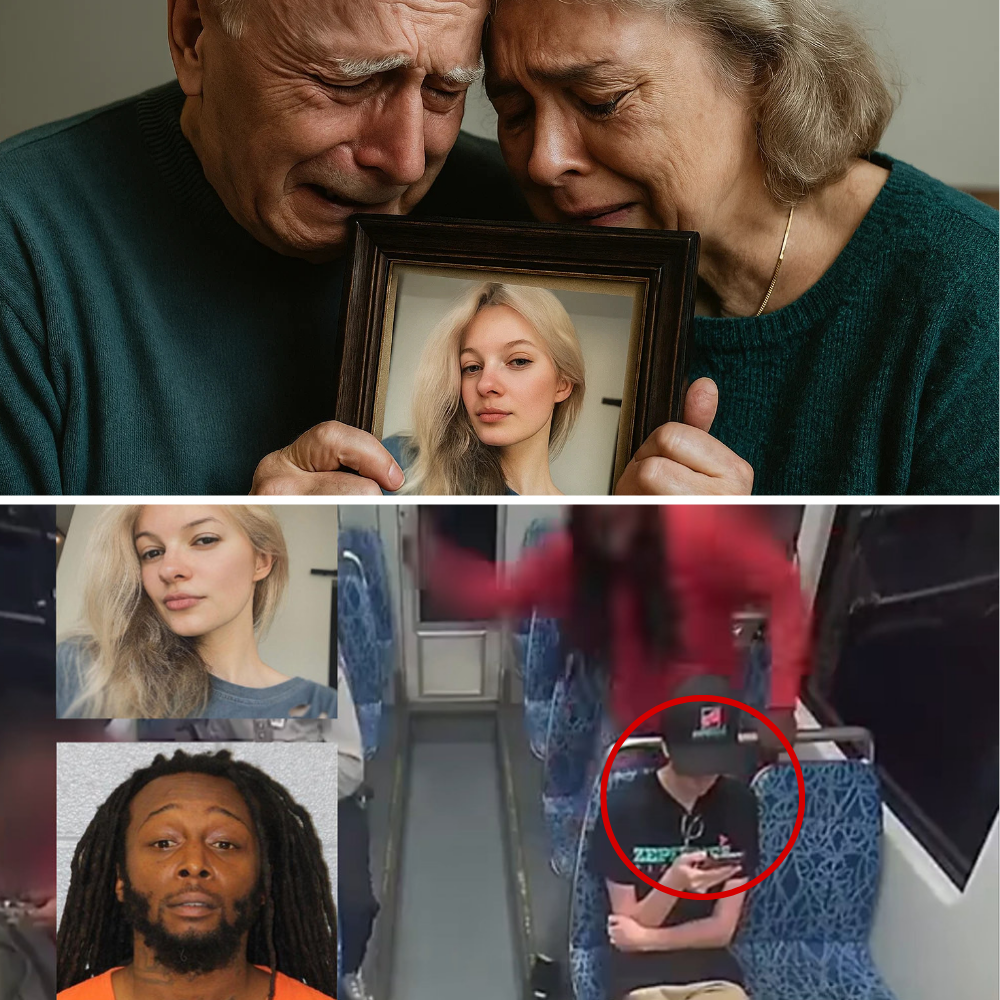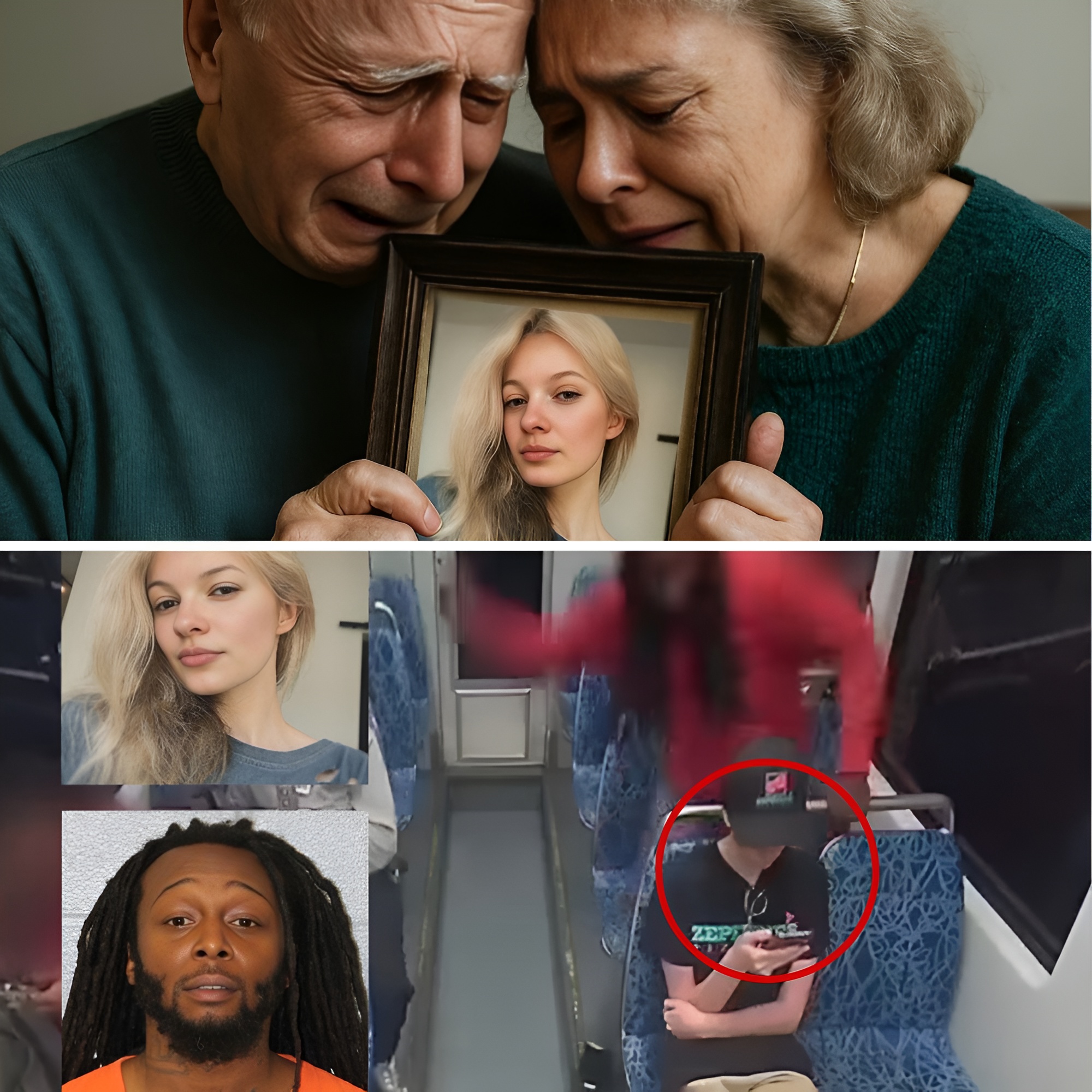
In the shadowed corners of a war-torn homeland, where the echoes of conflict still reverberate through shattered lives, the Zarutska family faced an unimaginable double blow: the brutal murder of their 23-year-old daughter Iryna in a land she had fled to for safety, followed by the crushing reality that neither parent could bid her farewell in person. Iryna Zarutska, a vibrant Ukrainian refugee who escaped the Russian invasion in 2022 with her mother and siblings, had rebuilt her dreams in Charlotte, North Carolina. Born in Kyiv on May 22, 2002, she was a gifted artist, a passionate soul who graduated from Synergy College with a degree in Art and Restoration. Her canvases brimmed with color and hope, gifts she shared freely with family and friends, even as she juggled jobs at a local pizzeria, babysitting, and dog-walking to chase her aspiration of becoming a veterinary assistant. She had fallen deeply in love with the “American Dream,” her uncle later revealed, mastering English and weaving herself into the fabric of her new community—yet her life was snuffed out in an instant on August 22, 2025.
The attack was as senseless as it was savage. Surveillance footage captured the horror: Iryna, seated quietly on the Lynx Blue Line train at East/West Boulevard station, was stabbed three times in the neck from behind by 34-year-old Decarlos Brown, a homeless man with a lengthy criminal history plagued by untreated mental illness. Brown, who had racked up over a dozen arrests since 2011 for offenses including armed robbery and assault, later rambled incoherently about government-implanted “materials” controlling his mind. The unprovoked assault, unfolding in the dim glow of a public transit car meant for weary commuters, left Iryna bleeding out before paramedics could arrive. She was rushed to a hospital but succumbed to her wounds, her young life—a beacon of resilience amid Ukraine’s unending war—extinguished in a city she had come to call home.
For her family, the grief deepened into agony when Ukraine’s martial law barred men of fighting age, like her father Stanislav, from leaving the country. Iryna’s mother, Anna, had immigrated with the children but could not return for the funeral either, trapped by logistics and the family’s heart-wrenching decision to bury Iryna in the United States—a testament to her profound attachment to her adopted nation. The initial funeral on August 27 unfolded without them, a hollow ceremony attended by neighbors, coworkers, and a swelling crowd of mourners who lit candles in her honor. Friends remembered Iryna as a “heart of gold,” always helpful and supportive, her obituary poignantly noting she was “happiest when surrounded by family and loved ones.” Stanislav, back in Kyiv where the family had once huddled in a bomb shelter dodging daily bombings, could only watch via a tear-streaked FaceTime call, his sobs echoing across oceans. Reports swirled of his denied border crossings, fueling international outrage and debates on Ukraine’s mobilization policies amid the ongoing invasion.
But in the quiet desperation of a late-night hour—sometime around September 17, as whispers of bureaucratic stonewalling peaked—a single phone call pierced the darkness like a fragile dawn. It was the Ukrainian State Border Guard Service, confirming that Stanislav had been granted humanitarian leave. With consular assistance from the Ukrainian embassy in the U.S., he boarded a flight, finally crossing borders forbidden to so many. The call, relayed through officials, wasn’t just permission; it was a lifeline, a final thread of hope allowing a father to hold his daughter’s hand one last time, to whisper apologies for the war that tore them apart, and to lay her to rest with the dignity she deserved. As Stanislav arrived in America, embracing his grieving wife and children, the moment symbolized not defeat, but defiance—a family’s unyielding love transcending borders, bombs, and bureaucracy.
Iryna’s death has rippled far beyond Charlotte, igniting global fury over public transit safety, mental health failures, and the vulnerabilities of refugees. Candlelight vigils on August 31 and September 22 drew hundreds, while U.S. politicians, including President Donald Trump, decried the “deranged monster” who slipped through the cracks of a broken justice system, vowing federal charges that could carry the death penalty. The House Judiciary Committee even scheduled a hearing on September 29 to probe urban crime and repeat offenders. In Ukraine, the Ministry of Foreign Affairs vowed constant contact with investigators, turning Iryna’s story into a clarion call for justice.
Yet amid the policy clashes and media storms, it’s the human heart that aches loudest. Iryna, who fled Kyiv’s sirens only to meet violence in a supposed sanctuary, leaves a void filled with her artwork’s lingering warmth. Her uncle’s words ring true: she contributed tirelessly, loved fiercely, and dreamed boldly. That midnight call didn’t erase the pain, but it mended a fracture, offering closure in a world too often defined by loss. As Stanislav stands graveside, the Zarutskas’ saga reminds us: hope, however faint, can illuminate even the blackest night, urging societies to protect the dreamers who seek refuge among us.
